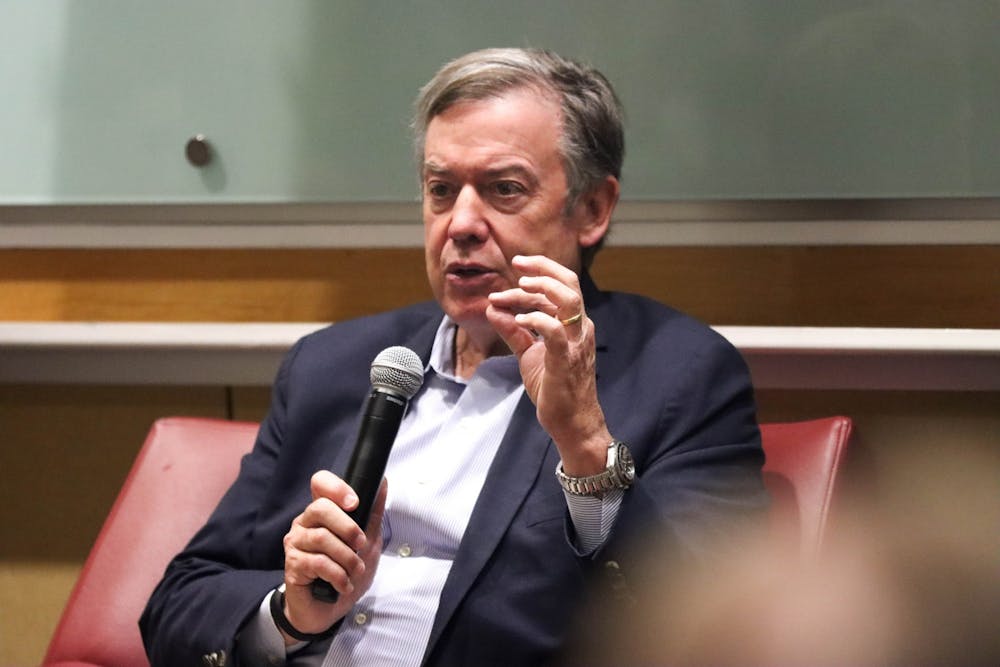ASU President Michael Crow and his executive staff presented its State of the University presentation to the Arizona Board of Regents last Thursday, highlighting the school's growth despite low state support.
The state provides 10% of the total money coming into ASU, according to its 2022 budget, which is around $360 million of its total $3.4 billion.
"So we can say we failed at convincing the state to make investments in the public universities, at least our public universities at the level that we think is merited," Crow said during the presentation.
Crow said the withdrawal of support of public universities from states is a "political outcome" and stems from the perception that universities are a "narrow good" that only benefit a few people, thus why some believe the state should not be investing heavily in higher education.
He also called the perception a "serious miscalculation," and said additional state resources would mean higher graduation rates, more student support and more students going to college.
The state's investment has essentially been flat since Crow's tenure began in 2002, Morgan Olsen, the executive vice president, treasurer and CFO said, with the investment by the state increasing by 0.3% annually over the last 20 years. In 2002, ASU's financial statement showed the state provided around $321 million to the University.
Before the recession in 2008, money from the state covered about 75% of students' education costs, such as tuition. Today, the state contributes around 25%, said Sarah Harper, ABOR's vice president of communications.
Even after the recession, the message from the state has been for universities to find other sources of funding. "Gov. (Doug) Ducey visited the board not long after he became governor and basically said we won't go back there again. You are going to have to be more entrepreneurial," Harper said.
The University has expanded its entrepreneurial enterprises through partnerships with Starbucks and the Mayo Clinic. ASU has also created other campuses in Los Angeles and Washington, D.C.and has collaborations with the Bermuda Institute of Ocean Sciences and in Hawaii.
The University has equity in several companies, such as OncoMyx Therapeutics, which is developing immunotherapies by using rabbit viruses to target the treatment of tumors in humans.
Crow said Arizona would benefit from the public enterprise model ASU has embraced. He said population growth alone does not encourage equitable economic outcomes, which he illustrated by pointing to Arizona's lagging personal income numbers while the population soars.
That business-like approach was condemned by Sami Al-Asady, a political science sophomore who submitted a letter to the editor to The State Press criticizing Crow's lack of attention to students' financial hardships. He called Crow's presentation a "sales pitch" to justify the University's requests for more funds.
"I never want to deny that ASU is not successful under Crow's leadership," Al-Asady said. "My concern is that the students are not being focused upon with all these presentations and that’s something I wish was emphasized more."
Reach the reporter at jdbrow52@asu.edu and follow @JamesBrownASU on Twitter.
Like The State Press on Facebook and follow @statepress on Twitter.

James Doyle Brown, Jr. is an opinion columnist at The State Press. He is also in his final semester as a graduate student studying investigative journalism at the Walter Cronkite School of Journalism and Mass Communication. He has previously reported for the State Press politics desk, The Howard Center of Investigative Journalism and Carnegie-Knight News21.




